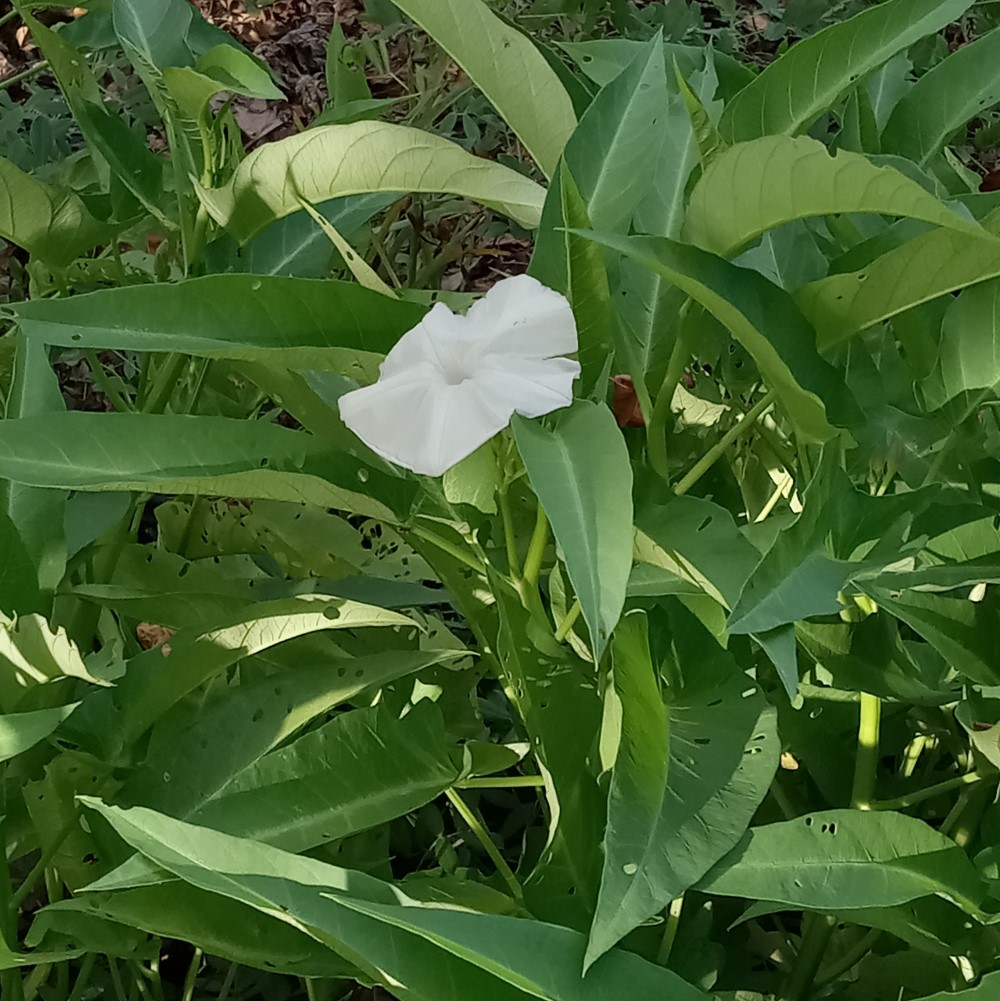Uses: Sustainable Food Source, Fodder Native to: Southeastern Asia
Ipomoea Aquatica: Exploring the Nutritional and Environmental Benefits of Water Spinach
In the realm of sustainable food, Ipomoea aquatica, commonly known as water spinach or kangkong, has emerged as a fascinating plant with immense potential. This aquatic vegetable, native to Southeast Asia, has gained popularity worldwide due to its exceptional nutritional value, adaptability, and positive environmental impact. In this blog post, we will delve into the various aspects of Ipomoea aquatica, exploring its origins, cultivation, health benefits, and its role in promoting sustainable food syste
Water spinach belongs to the Convolvulaceae family and is primarily cultivated in tropical and subtropical regions. It thrives in water-rich environments such as ponds, marshes, and rice paddies. This versatile plant exhibits rapid growth, with its long, hollow stems reaching up to 3 meters in length. The leaves are arrow-shaped and vary in color from green to purple, depending on the variety.
Water spinach is celebrated for its exceptional nutritional profile. Rich in vitamins A, C, and E, as well as minerals like iron, calcium, and potassium, it offers a wide range of health benefits. Additionally, it is a great source of dietary fiber and contains essential amino acids, and several of the B vitamins including niacin ad folate, making it a valuable addition to a balanced diet. According to a study done in Nigeria, the leaves of water spinach are approximately 17.5% protein. Incorporating water spinach into your meals can help boost immunity, improve digestion, and support overall well-being.
Antioxidant Powerhouse: Water spinach is packed with antioxidants that help combat free radicals, reducing the risk of chronic diseases such as cancer and heart disease.
Eye Health: The high vitamin A content in water spinach promotes good vision and helps prevent age-related macular degeneration.
Bone Health: Calcium and iron present in water spinach contribute to maintaining healthy bones and preventing conditions like osteoporosis.
Digestive Health: The dietary fiber in water spinach aids digestion, prevents constipation, and supports a healthy gut microbiome.
Sustainable Food Systems:
Ipomoea aquatica plays a crucial role in promoting sustainable food systems for several reasons:
Efficient Water Usage: As an aquatic plant, water spinach requires less groundwater irrigation compared to traditional land-based crops. Its cultivation in water-rich environments reduces the strain on underground freshwater resources.
Soil Conservation: Water spinach can be grown hydroponically, eliminating the need for soil. This method prevents soil erosion and degradation, preserving valuable agricultural land.
Fodder crops: Water spinach is well-received by many farm animals including the ducks and rabbits at Eat The Sand.
Biodiversity Support: The cultivation of water spinach in ponds and marshes provides habitats for various aquatic organisms, contributing to the preservation of biodiversity.
Climate Resilience: Water spinach exhibits resilience to extreme weather conditions, making it a suitable crop in regions prone to flooding or drought. Water spinach is not frost-tolerant.
Ipomoea aquatica, or water spinach, is a remarkable plant that offers a myriad of benefits. Its nutritional value, adaptability, and positive environmental impact make it an excellent choice for sustainable food systems. By incorporating water spinach into our diets and promoting its cultivation, we can contribute to a healthier future for both ourselves and the planet. Let us embrace this aquatic vegetable and explore the endless possibilities it holds in nourishing our bodies and preserving our environment.
More information about Water Spinach at Plants for a Future
